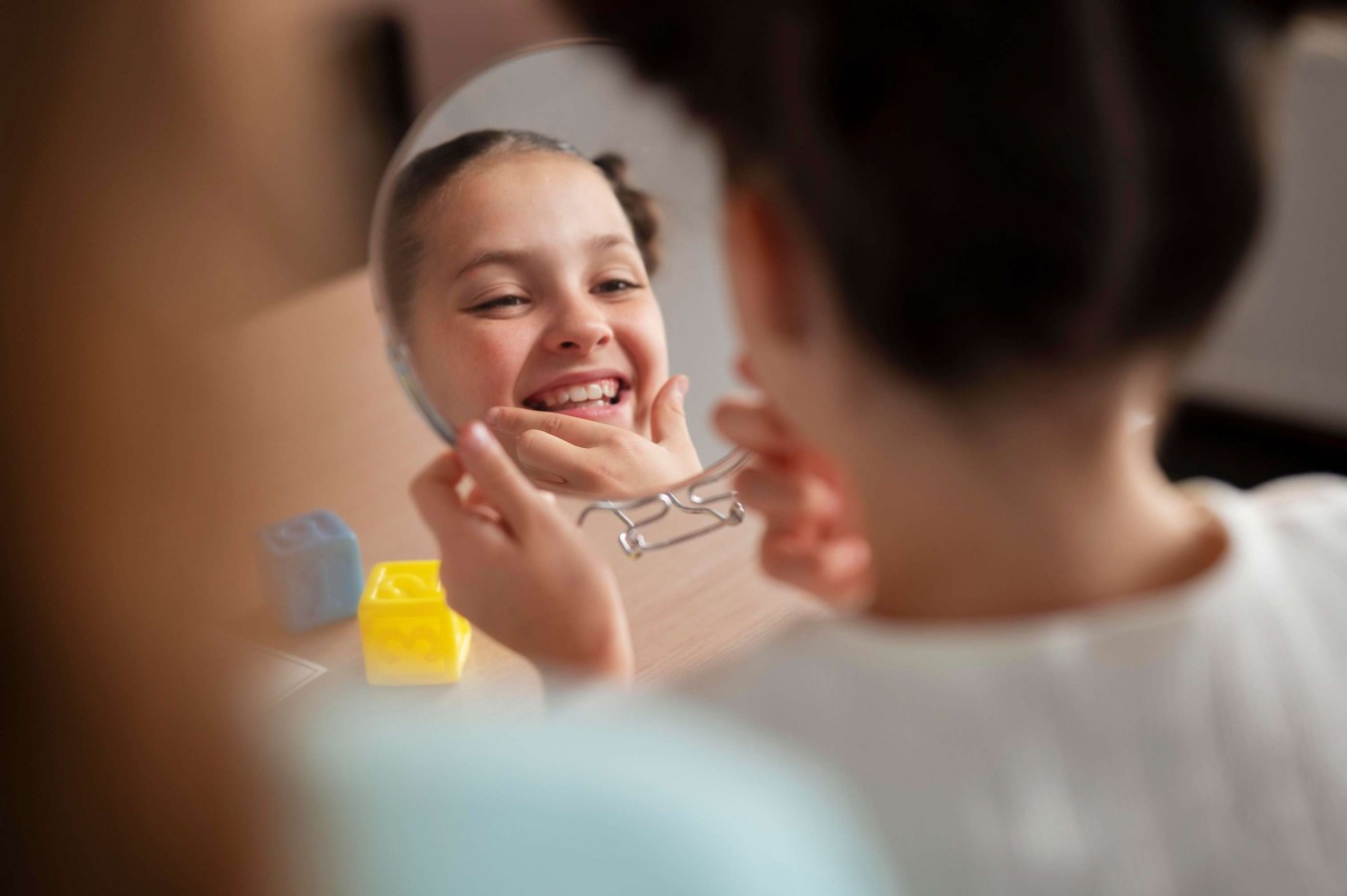Self-Care for Kids: Developing the Habit

Just as adults need to prioritize self-care for their physical and mental well-being, children also benefit immensely from learning and practicing self-care habits from a young age.
In this article, we'll delve into what self-care means for kids, how to promote it effectively, and ways to develop self-care habits that can last a lifetime.
Understanding Self-Care for Kids
Self-care for kids involves activities and practices that promote their physical, emotional, and mental well-being. It encompasses a range of behaviors that help children manage stress, build resilience, and nurture a positive self-image. While the concept of self-care may seem complex for young minds, it essentially boils down to teaching children to prioritize their own needs and engage in activities that make them feel happy, healthy, and balanced.
For children, self-care can include basic activities such as getting enough sleep, eating nutritious foods, staying physically active, practicing good hygiene, expressing emotions in healthy ways, and engaging in activities they enjoy. These activities lay the foundation for a lifetime of healthy habits and emotional well-being.
How Parents Can Promote Self Care for Kids
Parents play a crucial role in promoting self-care for kids by creating an environment that supports their physical, emotional, and mental well-being. Here's how parents can effectively promote self-care for their children:
A. Lead by Example
Parents serve as powerful role models for their children. By prioritizing their own self-care and openly discussing its importance, parents set a positive example for their children to follow. Let children see you engaging in activities that promote your well-being, such as exercising, practicing mindfulness, and taking breaks when needed.
B. Encourage Open Communication
Create a safe and supportive environment where children feel comfortable expressing their thoughts, feelings, and concerns. Encourage open communication about emotions and teach children healthy ways to cope with stress and adversity. Listen actively to their experiences and offer empathy and guidance when needed.
C. Establish Boundaries
Help children understand the importance of setting boundaries and prioritizing their own needs. Teach them to recognize when they need rest, relaxation, or time alone, and encourage them to communicate their boundaries assertively and respectfully. Model healthy boundary-setting behaviors in your interactions with others.
D. Provide Opportunities for Play and Creativity
Play and creativity are essential for children's development and well-being. Encourage unstructured playtime and provide access to toys, games, and activities that spark joy and imagination. Allow children to explore their interests and express themselves creatively through art, music, storytelling, and imaginative play.
E. Foster Independence
Empower children to make decisions about their own well-being and take responsibility for their actions. Encourage independence by involving children in age-appropriate tasks and decision-making processes. Offer guidance and support as they navigate challenges and learn to problem-solve on their own.
F. Be Patient and Flexible
Developing self-care habits is a gradual process that requires patience, consistency, and flexibility. Understand that children may resist certain activities or struggle to adopt new habits initially. Be patient and supportive, and be willing to adjust strategies based on your child's individual needs and preferences.
8 Ways to Develop Self-care Habits for Kids
Developing self-care habits for kids involves a gradual and supportive approach that encourages children to prioritize their own well-being and integrate healthy practices into their daily lives. Here's a detailed explanation of how to develop self-care habits for kids:
1. Mindfulness and Relaxation Techniques
Teach children mindfulness and relaxation techniques to help them manage stress and emotions. Activities such as deep breathing exercises, guided meditation, yoga and progressive muscle relaxation can help children develop a sense of calmness and self-awareness.
2. Journaling and Self-Reflection
Encourage children to keep a journal where they can write about their thoughts, feelings, and experiences. Journaling provides a safe outlet for self-expression and allows children to reflect on their emotions and experiences in a constructive way.
3. Physical Activity
Promote physical activity as a form of self-care by encouraging children to engage in regular exercise and movement. Activities such as playing sports, dancing, riding bikes, and going for walks or hikes not only support physical health but also boost mood and energy levels.
4. Creative Expression
Encourage children to express themselves creatively through art, music, dance, and other forms of creative expression. Provide them with art supplies, musical instruments, and opportunities to explore their interests and talents in a supportive environment.
5. Outdoor Time
Next self-care for kids you can do is by encouraging children to spend time outdoors in nature as part of their self-care routine. Outdoor activities such as hiking, gardening, birdwatching, and exploring natural settings can promote relaxation, creativity, and a sense of connection with the natural world.
6. Healthy Eating Habits
Teach children about the importance of nourishing their bodies with healthy foods. Involve them in meal planning, grocery shopping, and cooking activities to help them develop an appreciation for nutritious foods and learn valuable cooking skills.
7. Rest and Relaxation
Help children understand the importance of rest and relaxation for their overall well-being. Encourage them to establish regular bedtime routines, take breaks when needed, and prioritize activities that help them recharge and unwind, such as reading, listening to music, or taking a warm bath.
8. Social Connections
Support children in developing positive social connections and relationships with family members, friends, and peers. Encourage them to engage in activities that promote social interaction, collaboration, and empathy, such as team sports, group projects, and community service activities.
Need Extra Help in Developing Self-Care for Kids?
Teaching children the importance of self-care is an invaluable gift that lays the foundation for a lifetime of health, happiness, and resilience. But sometimes, as parents you might need extra help in developing a self-care routine for your kids.
As your additional options, you can enroll your children to certified Preschool & Kindergarten where they can begin the first phase of their self-care journey. One highly recommended place that’s perfect for your children is Rockstar Academy.
At Rockstar Academy, we understand the importance of nurturing both the minds and bodies of young learners. That's why each of our academies offers more than 120 high-quality classes per week, catering to a diverse range of interests and developmental needs.
From Early Childhood Education to Gymnastics, Dance, Ballet, Cheerleading, Broadway, Contemporary Dance, Martial Arts, and Sports, our comprehensive curriculum is designed to inspire and empower children to reach their full potential.
On top of that, Rockstar Academy also offers a free trial class which allows children to experience our programs firsthand, giving them the chance to explore our facilities, meet our instructors, and discover the joy of learning through movement!
FAQ
What age should children start learning about self-care?
Children can start learning about self-care from a very young age, as early as preschool or kindergarten. However, the specific activities and concepts may vary depending on their developmental stage and individual needs.
How can parents encourage reluctant children to practice self-care?
Parents can encourage reluctant children to practice self-care by making activities fun, engaging, and relevant to their interests. Incorporating play, creativity, and choice into self-care activities can help children feel motivated and empowered to participate.
Are there any signs that indicate a child may need more support with self-care?
Signs that a child may need more support with self-care include changes in mood or behavior, difficulty managing stress or emotions, disruptions in sleep or eating patterns, and complaints of physical discomfort or fatigue. It's important for parents and caregivers to pay attention to these signs and offer support and guidance as needed.



